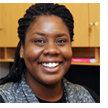Teachers and Students to Celebrate National DNA Day with a Wide Assortment of Events and Activities
 The National Human Genome Research Institute (NHGRI), part of the National Institutes of Health (NIH), is celebrating the fourteenth annual National DNA Day this year. National DNA Day commemorates the successful completion of the Human Genome Project in 2003, and the discovery of DNA's double helix in 1953. NHGRI began celebrating this day annually on April 25th after the 108th Congress passed concurrent resolutions in 2003 designating it as “National DNA Day”. The National Human Genome Research Institute (NHGRI), part of the National Institutes of Health (NIH), is celebrating the fourteenth annual National DNA Day this year. National DNA Day commemorates the successful completion of the Human Genome Project in 2003, and the discovery of DNA's double helix in 1953. NHGRI began celebrating this day annually on April 25th after the 108th Congress passed concurrent resolutions in 2003 designating it as “National DNA Day”.
There are many National DNA Day events scheduled in locations throughout the country, but NHGRI’s goal is to make a celebration accessible to anyone interested in participating, so they are still seeking to add more events to their map. If there are no events in your area, consider starting your own. Their website provides free resources to help you launch your own DNA Day campaign in your community. The kit includes National DNA Day logos, PowerPoint slides, nametags, sample press releases, and other materials to help make your event a success. Read more.
Teaching Molecular Biology with
Kinesthetic Models!
 The year 2016 has been a breakthrough year. DNA and RNA nucleotides patented by MIT are now being mass produced and worldwide distribution has begun. MIT is offering the sets at cost, thanks to foundation gifts and to volunteers who assemble sets. The first ten classroom sets of DNA/ RNA were shipped to diverse places including universities in California and Singapore; US high schools in Texas, Florida and Massachusetts; and a science center in Italy. The year 2016 has been a breakthrough year. DNA and RNA nucleotides patented by MIT are now being mass produced and worldwide distribution has begun. MIT is offering the sets at cost, thanks to foundation gifts and to volunteers who assemble sets. The first ten classroom sets of DNA/ RNA were shipped to diverse places including universities in California and Singapore; US high schools in Texas, Florida and Massachusetts; and a science center in Italy.
Also in breaking news, amino acids and tRNA models will become available in summer 2016. Taken together with the DNA, these models give students the opportunity to produce proteins from the DNA instructions, simulating the multi-step process of protein synthesis. Furthermore, the protein chains can be folded into helices and beta pleated sheets; all four levels of protein folding can be illustrated. Read more.
Once in a Century Event at MIT |
 |
Every High School Student Should Become
An Entrepreneur
 Becoming an entrepreneur has the biggest impact on growing the most important skills and mindset components for success. Our goal at MIT Launch is to prepare students for real world success, and that takes resiliency, problem solving, adaptability, and resourcefulness – far more than just the ability to take a test – and we offer the exciting and dynamic environment to explore one’s passions, solve problems, and innovate through a proven process guided by top thought leaders. Becoming an entrepreneur has the biggest impact on growing the most important skills and mindset components for success. Our goal at MIT Launch is to prepare students for real world success, and that takes resiliency, problem solving, adaptability, and resourcefulness – far more than just the ability to take a test – and we offer the exciting and dynamic environment to explore one’s passions, solve problems, and innovate through a proven process guided by top thought leaders.
Students go all the way from coming up with ideas, through market research and prototyping, to a final pitch. There is a reason that MIT cranks out so many entrepreneurs with repeatable success, and it comes down to Disciplined Entrepreneurship. Throughout this process, students learn integrated and proven methods for entrepreneurial success, plus receive mentorship and professional skills development throughout the hands-on application. Entrepreneurship CAN be taught. Read more.
Clubes de Ciencia Colombia: Bringing the Experience of STEM and E.I. Research to Young Colombian Students
 Picture yourself as a curious young student in one of the poorest neighborhoods of a Colombian city. Your educational options after attending public high school are pretty limited and you’re facing a dilemma: You would like to keep studying, but your family needs resources and wants you to work in something ‘productive.’ One time you said out loud that you wanted to be a scientist, but everybody laughed as if you were joking. Scientist? You? No way! Most of the time you share that skepticism, but one day you meet real Colombian scientists, they tell you their stories, they invite you to do some fun experiments with them, and then your plans begin to change. Picture yourself as a curious young student in one of the poorest neighborhoods of a Colombian city. Your educational options after attending public high school are pretty limited and you’re facing a dilemma: You would like to keep studying, but your family needs resources and wants you to work in something ‘productive.’ One time you said out loud that you wanted to be a scientist, but everybody laughed as if you were joking. Scientist? You? No way! Most of the time you share that skepticism, but one day you meet real Colombian scientists, they tell you their stories, they invite you to do some fun experiments with them, and then your plans begin to change.
That’s exactly what happened to Johan, a sixteen year old student from Medellín, who participated in the first version of Clubes de Ciencia Colombia (Science Clubs Colombia) last year. “I want to study astrophysics,” he told one of his instructors, “but a lot of my relatives say that I shouldn’t do that, because Colombia doesn’t need physics or science, and that it will be even worse for me because of my socio-economic background.” Fortunately, after his experience in Clubes de Ciencia, Johan’s life had an unexpected change. Read more. |